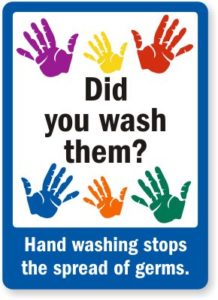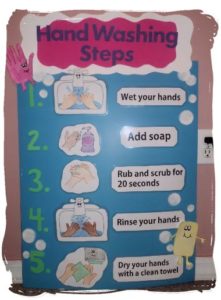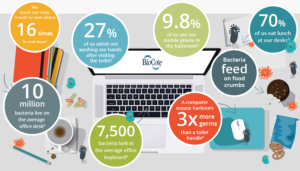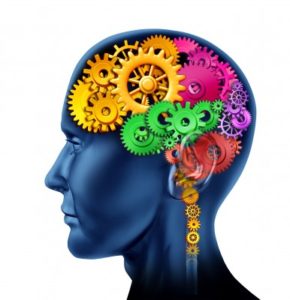When & How to Wash Your Hands
Keeping hands clean through improved hand hygiene is one of the most important steps we can take to avoid getting sick and spreading germs to others. Many diseases and conditions are spread by not washing hands with soap and clean, running water. If clean, running water is not accessible, as is common in many parts of the world, use soap and available water. If soap and water are unavailable, use an alcohol-based hand sanitizer that contains at least 60% alcohol to clean hands.
When should you wash your hands?
- Before, during, and after preparing food
- Before eating food
- Before and after caring for someone who is sick
- Before and after treating a cut or wound
- After using the toilet
- After changing diapers or cleaning up a child who has used the toilet
- After blowing your nose, coughing, or sneezing
- After touching an animal, animal feed, or animal waste
- After handling pet food or pet treats
- After touching garbage
How should you wash your hands?
- Wet your hands with clean, running water (warm or cold), turn off the tap, and apply soap.
- Lather your hands by rubbing them together with the soap. Be sure to lather the backs of your hands, between your fingers, and under your nails.
- Scrub your hands for at least 20 seconds. Need a timer? Hum the “Happy Birthday” song from beginning to end twice.
- Rinse your hands well under clean, running water.
- Dry your hands using a clean towel or air dry them.
What should you do if you don’t have soap and clean, running water?
Washing hands with soap and water is the best way to reduce the number of germs on them in most situations. If soap and water are not available, use an alcohol-based hand sanitizer that contains at least 60% alcohol. Alcohol-based hand sanitizers can quickly reduce the number of germs on hands in some situations, but sanitizers do not eliminate all types of germs and might not remove harmful chemicals.
Hand sanitizers are not as effective when hands are visibly dirty or greasy.
How do you use hand sanitizers?
- Apply the product to the palm of one hand (read the label to learn the correct amount).
- Rub your hands together.
- Rub the product over all surfaces of your hands and fingers until your hands are dry.
Almost everyone has dropped food on the floor and still wanted to eat it. Some people apply the “5-second rule” — that random saying about how food won’t become contaminated with bacteria if you pick it up off the floor in 5 seconds or less.
The 5-second rule has become such a part of our culture that scientists actually tested it. As you can probably guess, they found that the “rule” is mostly myth: Bacteria can attach to food even if you pick it up super fast. So, depending on which types of bacteria happen to climb on board, you could still get sick.
Here are two facts to consider whenever you feel tempted by the 5-second rule:
- A clean-looking floor isn’t necessarily clean. A shiny linoleum floor is probably cleaner than a 1970s-era carpet. But even clean, dry floors can harbor bacteria. Newly washed floors are only as clean as the tools used to wash them (picture eating food off the mop in the cafeteria if you need a visual). Even with a brand-new mop or sponge, stubborn germs can still remain on the floor after cleaning.
- Fast is better — but it may not be fast enough. Although a piece of food does pick up more bacteria the longer it’s on the floor, bacteria can attach to it instantly. So any food that makes contact with the floor can get contaminated if conditions are right. And foods with wet surfaces, like an apple slice, pick up bacteria easily.
When in Doubt, Toss It Out
Some bacteria are not harmful. But others can torture you with miserable stuff like diarrhea. Even if there’s no visible dirt on your food, you can still get sick. You just can’t tell what kinds of bacteria may be lurking on the floor.
So what are you to do with the piece of watermelon that just slipped from your grip? The safest choice is to throw it out. Or let the dog have it. (And there’s another thing to consider — even the 5-second rule can’t get around the fact that your food may have landed right in a spot where Fido parked his butt.)



